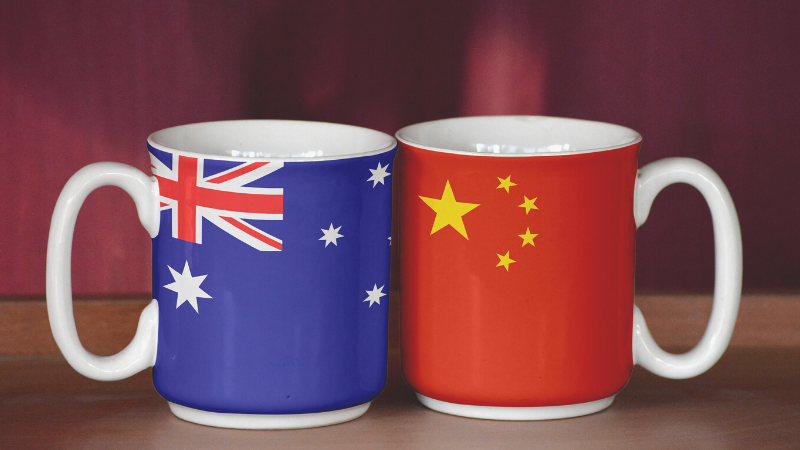PERSPECTIVES | People-to-people links: the lifeblood of the Australia-China relationship
July 03 2020

Looking for a relevant opening sentence on what individuals and businesses can do to contribute to an ongoing strong, mutually beneficial relationship between Australia and the People’s Republic of China (PRC), I stumbled across a pertinent quote from Confucius on friendships:
Friends should ‘loyally admonish one another and tactfully set one another right’ and importantly friends should be dependable ‘even if the season be cold, we know that pines and cypresses are evergreen.’
At present both Australia and the PRC are certainly following Confucius’ advice and loyally admonishing each other, to put it lightly. For those of us who have been part of the Australia-China relationship for some time, we look forward to the clean scent of pine and cypress wafting on the breeze sooner, rather than later.
I do not intend to wander into that forest in this piece, but rather to give some thoughts on what we, as individuals, businesses, and organisations can do to contribute to ongoing strong ties between our countries. It is important to recognise and manage difficulties and differences in the relationship at the government level, but it is equally important not to lose sight of the value of people-to-people links, and to continue to build and nurture them.
There is a Chinese saying that ‘The man who moves a mountain begins by carrying away small stones.’ In the context of front-page headlines and the strong words, tensions, and sabre-rattling that reflects the current bilateral environment it is good to stand back and look at which small stones each one of us can move.
While at present most of our attentions are focused on the PRC, those of us who have been engaged in Asia for several decades will recall the ebb and flow, tensions and dramas of different bilateral relationships at different times. Indonesia, Thailand, Vietnam, the US, Papua New Guinea, Fiji, Malaysia, all have had their challenges, their ups and downs. Tensions are a normal part of any relationship and it is useful to take pause and remember that.
Doing business in any market, whether in Australia, or overseas, has an associated set of risks and opportunities. For the majority of Australian companies doing business with, and in, the PRC, day-to-day operational risk management is the most important, immediate, and fundamental to sales and profit growth and long-term sustainable business development. Bilateral government relationships are mostly beyond our control, but not necessarily beyond our ability to contribute in a constructive manner.
Governments, like individuals, have reputations to uphold, positions to take, ‘face’ to be given and saved. While the concept of ‘face’ is often seen as being distinctively Chinese, or at least Asian, the concepts of dignity, respect and reputation are neither Chinese nor Western. They are concepts that make good business sense and executives and officials who recognize this are the ones that are generally the most successful at an individual and organisation level.
With the current tensions between Australia and the PRC we do not need to delegate responsibility to our governments alone. Personal, company and organisation level engagement with our Chinese friends, business partners and work colleagues can play an increasingly important role to move forward. A small stone lifted.
Being Australia’s single largest trading partner means there are thousands of Australian and Chinese companies and individuals involved in our bilateral commercial, cultural and social relationships. We all have a common purpose and ambition for our businesses to continue to grow and prosper.
My challenge to each of us on the Australian side is to ensure we keep our communications open, engage with our Chinese counterparts, business partners and networks. Be constructive, be open, and systematic to make that effort. Over the past six months, how many of us reached out to our Chinese contacts to simply check in and offer support through the challenges of COVID-19? Not just to our company colleagues and business-critical contacts, but to our broader networks in the PRC? More recently, as the fires of bilateral political and economic tension have been fanned and grown, have we reached out and engaged with our Chinese counterparts or have we been reticent to do that? I would also encourage our Chinese counterparts reading this to do the same with Australian colleagues.
If there is one thing my last 30 years of dealing with the PRC has shown me is that whatever highs and lows our bilateral relationship has experienced, human connections have weathered all. In fact, support, engagement and dialogue is always respected, remembered and valued, no matter what the front-page headlines say. Indeed, as is discussed in Elena Collinson and James Laurenceson’s June overview and analysis of Australia-China relations, just last week a poll of Chinese public sentiment conducted by Beijing Foreign Studies University and PRC state-run media outlet The Global Times indicated that Australia remained a popular destination of choice for tourists and students.
When you finish reading this monthly wrap-up, set yourself a challenge. List out 10 Chinese contacts. Over the next 10 days contact one of them each day to touch base and engage. Be open about why you are reaching out. Listen to their view of their business, their challenges, their opportunities, their thoughts on the bilateral relationship. Discuss it, listen, learn, share your own views and thoughts. Take note of key points and I would encourage you to share those with your own networks, organisations and government agencies involved in our bilateral relationship.
I am sure that the team at the Australia-China Relations Institute at the University of Technology Sydney (UTS:ACRI) are also very keen to hear these thoughts and views to understand the pulse and reality of the bilateral relationship from the Australian and Chinese individuals doing business day-in, day-out, engaging in academic discourse and participating in other interrelationships, who are, in the end, the lifeblood of the bilateral relationship.
We can each lift the small stones to gradually move the mountain. If some of the stones seem a little too heavy, the words of Sun Tzu will surely add energy to our efforts:
‘There is no instance of a nation benefiting from prolonged warfare’.
Peter Osborne is Vice Chairman of the China Association for Quality Inspection and was formerly Managing Director Asia for Blackmores Limited, and Minister (Commercial) and Country Manager for Austrade at the Australian Embassy in Beijing. He is a UTS:ACRI Advisory Board member.

